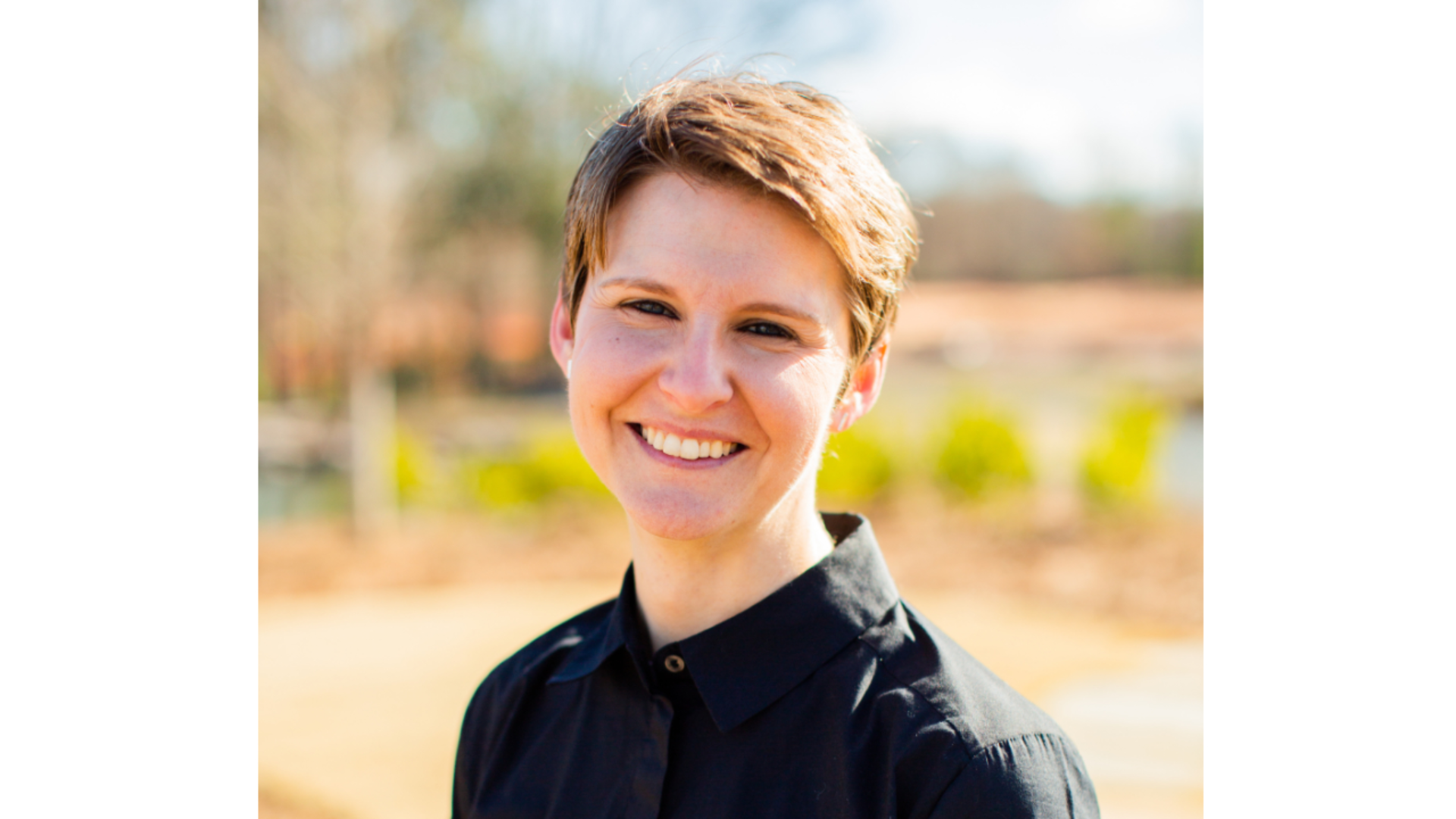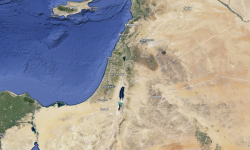
This occasional weekend column called ‘Pondering:…’ is where people from within the 'Team of 40,000 Baptists' can share issues they are thinking about, in a way that opens up a topic from a particular perspective. Feel free to comment on these pieces or contribute your own pondering. Opinion pieces are the views of individuals and need to be considered within the context of the diversity of our union of Baptist churches in New Zealand. When commenting or contributing please follow our Guidelines for articles, opinion pieces and online comments.
This pondering below comes from Christa McKirland, a member of Royal Oak Baptist Church in Auckland, and Lecturer in Systematic Theology at our Carey Baptist College. Christa grew up in the United States of America in a church within the Southern Baptist Convention.
As I watched my Twitter feed explode last week with the news of the Southern Baptist Convention’s overwhelming agreement to disfellowship churches that ordain women I had a mix of emotions. Numbness, anger, resignation, but mostly, sadness. According to NPR (an American nonprofit media organisation), Al Mohler, an active and influential member of the Southern Baptist Convention, stated that the "The issue of women serving in the pastorate… is an issue of fundamental Biblical authority that does violate both the doctrine and the order of the Southern Baptist Convention." According to the article, as Mohler spoke, voters (13,000 representatives from Southern Baptist churches across the United States of America, representing 13 million Baptists) interrupted him several times with supportive applause of his position. The “doctrine and order” he seems to be referring to is the 2000 Baptist Faith and Message, in which they include the sentence, “The office of pastor is limited to men as qualified by Scripture.”
My mix of emotions came about for several reasons, not least of which being that this is the denomination of my youth and remains the denomination of many I would call “my people.” I was the little girl sitting in the pews wondering why only men were on the stage, in the baptistry, serving communion, or passing the offering plate. And I know that many more little girls will continue to see that same pattern as this decision was finalised. This grieves me.
I’m also angry. The question of women’s roles in the church have been equated with biblical authority instead of biblical interpretation. Brilliant biblical scholars earnestly disagree on how to read these ancient texts that were first God’s word to someone else before they were ever God’s word to us. Hard, careful work is required to understand these texts as best we can, and at the end of the day, we disagree on how to interpret them. But this is not the framing of Mohler and others. For them, if we budge on this, we negate the Bible as our authority. I think the argument goes something like: If we cannot know this, which seems so self-evident, how can we know anything? But this logic is part of the problem. Women’s exclusion from leadership is not self-evident. We see this with Phoebe, Junia, Prisca, Lydia, among others. We see this in the specific contexts in which Paul wrote his letters – as Glahn suggests: we have misunderstood Paul by misunderstanding the context to which he wrote. And, here’s the kicker, even if women are not supposed to be teaching and preaching to men and women, this isn’t a reason to disfellowship churches! The only time we see that kind of action in the Bible is over egregious immorality (1 Cor. 5:1-13). Women preaching, teaching, and pastoring is about advancing the gospel of Jesus Christ—and Paul himself does not care why or how the gospel is preached (Phil 1:15-18) but that it is preached!
Meanwhile, over the last twenty years, there have been over 700 victims of sexual abuse across the denomination. These were often victims of pastors and the larger organization knew about these cases and kept a secret list [webpage trigger warning] of the offenders. While these cases of often repeated abuse would be clear grounds for disfellowshipping a person or church community (if they did not expel the pastor), instead, the line drawn in the sand for the Southern Baptist Convention is about barring women from holding the office of pastor.
Further, the irony of the Baptist Faith and Message is, first, the language of “office” itself is not a biblical category, but such an idea evolved over time as leaders functioned on a more permanent basis in the local church (which we also need to keep in mind would have been no more than 40 people meeting in a home).
Second, the conflation of pastor with overseer or elder is also not accurate. Pastoring is its own function, occurring only one time in the New Testament (Eph. 4:11) and is distinct from elders/overseers (1 Tim. 3, not that there couldn’t be overlap with some elders/overseers having pastoral gifts). Thus, such language of “the office of pastor” is itself unbiblical.
Third, this action of the Southern Baptist Convention is not actually Baptist. In their section on “The Church” each congregation is recognized as an “autonomous local congregation” that is meant to discern the mind of Christ (though this part is not listed in their statement, but it is a historical distinctive of being Baptist). However, such autonomy is only to a point, at which time the Convention can bar that church from its association of 47,000 Southern Baptist churches. The reason the Southern Baptist Convention rarely, if ever, intervened when there was sexual abuse is because each local church is autonomous [webpage trigger warning]. And yet, now, they are willing to undermine local church autonomy by removing churches from fellowship—not for sexual abuse—but for allowing women to function as pastors, elders, or overseers.
I believe, at root of so much of this is the question of authority—not so much of Scripture (despite the rhetoric)—but authority over one another. And this is where there is a bit of a silver-lining for me. Because the Southern Baptist church was my home, I have grown up with questions about who is in charge and who can’t be. The recent debates continue to illustrate how important this conversation is, not just to Americans, but to faithful Baptists and Christians all over the world. This is why my next project is focusing on that question of authority—what do we mean by it and who has it? I think these questions land on our shores as well. While we may have women serving in pastoral roles (and I celebrate this even though we have some work to do!), this is all subordinate to being bodies of believers submitted to Jesus and the authority of the Holy Spirit. To do this requires corporate discernment that the whole body is meant to participate in—women just as much as men.
So, while I still feel waves of those emotions, my primary feeling now is motivated. Motivated to do research and writing that speaks to these issues. Motivated to encourage our next generation of Jesus followers to corporately discern the mind of Christ. Motivated to encourage women to know and walk in their gifts. Motivated to help the whole body become dignified in our individual and shared ministries within and outside of the church. We are called to so much more than what we have settled for, and I’m motivated to press into the possibilities. What about you?
The Baptist Union of New Zealand affirms equality in leadership regardless of gender, and there have been various statements and affirmations made together in the past at our national Assemblies/Hui. The latest statement on equality in leadership in New Zealand Baptist churches was made in 2017, and can be viewed online here: baptist.nz/women-in-leadership

Christa McKirland PhD, ThM, MA, BA (Hons) is Lecturer in Systematic Theology at Carey Baptist College in Aotearoa New Zealand.
Study with Christa
If you wish to study with Christa, how about enrolling in the course Thinking Theologically in Semester two 2023? Applications close 30 June 2023, and if you are new to study at Carey you may be eligible to study for free via a Kickstart Scholarship.
Christa is also presenting a webinar series starting on 19 July 2023 that explores how our understanding of authority affects what women can and cannot do within the church and home. Register here.
Previous Pondering column: Pondering: Governance of our tribe
Photo credits: Main photo bymuratdeniz from istock, Christa McKirland photo Eleanor Stenner


